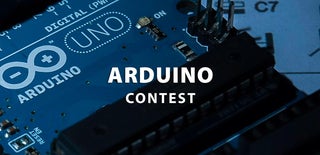Introduction: LED Engine on Tinkercad
This circuit is LED engine controlled by a potentiometer and hooked up to an Arduino micro controller. The LCD displays the RPM and gear value depending on the value of the poteniometer. I created this circuit out of my love for cars and specifically the Nissan Skyline. The Skyline is powered by a inline 6 engine called the RB26DETT and I used the firing order for that engine in circuit. The list of parts that I used goes as listed
1 Arduino Uno 3
6 120 ohm resistors
1 1k ohm resitor
6 Red LEDs
2 Small Bread boards
1 100k ohm Potentiometer
1 16x2 LCD display
Step 1: Gathering Materials
First lay out all of the components from the Tinkercad components bar and line them in as show in the photo.
Step 2: Connecting Wires
Add the connections shown in the photo. The black wires are ground connections and the red wires are power connections. The 6 wires coming from on top of the first bread board are going to be used for the ground of the LEDs.
Step 3: Connecting the LEDs
Add the LEDs in the exact order shown in the photo with the exact spacing and connections. The LEDs go from left to right so the one on the far left is LED or cylinder 1 and the one the far right is LED 6 or cylinder 6. Use the 6 120 ohm resistors for this
LED 1 should be connected to digital pin 2 on the Arduino,
LED 2 should be connected to digital pin 3 on the Arduino,
LED 3 should be connected to digital pin 4 on the Arduino,
LED 4 should be connected to digital pin 5 on the Arduino,
LED 5 should be connected to digital pin 6 on the Arduino,
LED 6 should be connected to digital pin 7 on the Arduino,
Step 4: Connecting the Potentiometer
Next add the potentiometer to the bread board. The potentiometer will sit between LED 5 and LED 6 and when placing it make sure it does not interfere the resistor for the LED 5. The potentiometer will be connected to analog pin A0. The potentiometer will control how fast the LEDs will fire. The code is written in a way where one the potentiometer reaches the half way point the leds will fire at the fastest speed possible and once passed the half way point the leds will slowy slow down and will be a slow and steady fire rate at the end of the potentiometer.
Step 5: Connecting the LCD Display
Next is to add the LCD display to the circuit. The LCD display will connect to the second bread board because of its size and connections required. The LCD monitor will be displaying a RPM value depending on what value the poteniometer is at. The first half of the potenitometer is the acceleration so it will start at 950RPM and will rise to 8000RPM once half way and with that a gear value will also be displayed, the gears will be from 1 to 6. Once passed the half way point the deceleration will start the RPMs will go from 8000 to 1100 and the gears will also go down from 6 to 1.
The connections for the LCD display are:
Ground will connect to ground
Power will connect to power
Contrast will connect to ground
Register Select will connect to pin 8
Read and Write will connect to ground
Enable will connect to pin 9
skip D1,D2,D3
D4 will connect to pin 10
D5 will connect to pin 11
D6 will connect to pin 12
D6 will connect to pin 13
LED anode will connect to power but add a 1k ohm resistor in between
LED cathode will connect to ground
Step 6: Lastly the Code
The last and final step will be to code everything. The code and completed is attached at the bottom, you will be able to interact with the circuit and be able to view the code. You can copy the code from here and paste it into your coding box on your tinkercad circuit.

Participated in the
Arduino Contest









